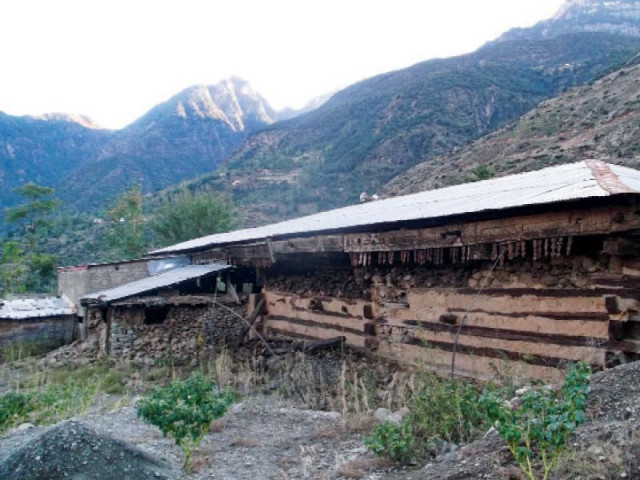Wall of 250-year-old Seo Mosque collapses
Before the quake, it could hold 1,200 worshipers .

Damaged wall of historic mosque in Kohistan. PHOTO: EXPRESS
In the aftermaths of most natural calamities, the first wave of reaction and disaster management is to do with human toll and the impact on objects proximal to human survival. It takes several months if not years for authorities to react to other sorts of losses – those that impact life at the distal. Seo Mosque in Kohistan falls under the latter.
According to various unofficial websites, the mosque is roughly 250 to 300 years old, located in Seo village. The village itself is 10 kilometres north of Dasu.
Monday’s earthquake caused the historic mosque’s exterior wall to cave in.
Social activist Shamsur Rehman said one of the walls, about 40 feet long and six feet high, was destroyed.
“The district administration has added this damage to the list of destroyed structures which merit compensation from the government,” said Rehman. According to Rehman, locals were willing to repair the wall if there was any delay from the government side.
Before the quake, Seo Mosque could accommodate 1,200 worshippers at a time. It is still considered a tourist attraction. The woodwork panelling still visible on the exterior displays hand-carvings. Supported by the woodwork and stones, the mosque has a roof made of corrugated steel sheets.
Kohistan to date remains highly underdeveloped even though it is nature and resource rich. It was also one of the worst-hit regions after Torghar. Upper Kohistan witnessed 18 deaths and mass destruction of mud houses and road networks.
Published in The Express Tribune, October 29th, 2015.













COMMENTS
Comments are moderated and generally will be posted if they are on-topic and not abusive.
For more information, please see our Comments FAQ